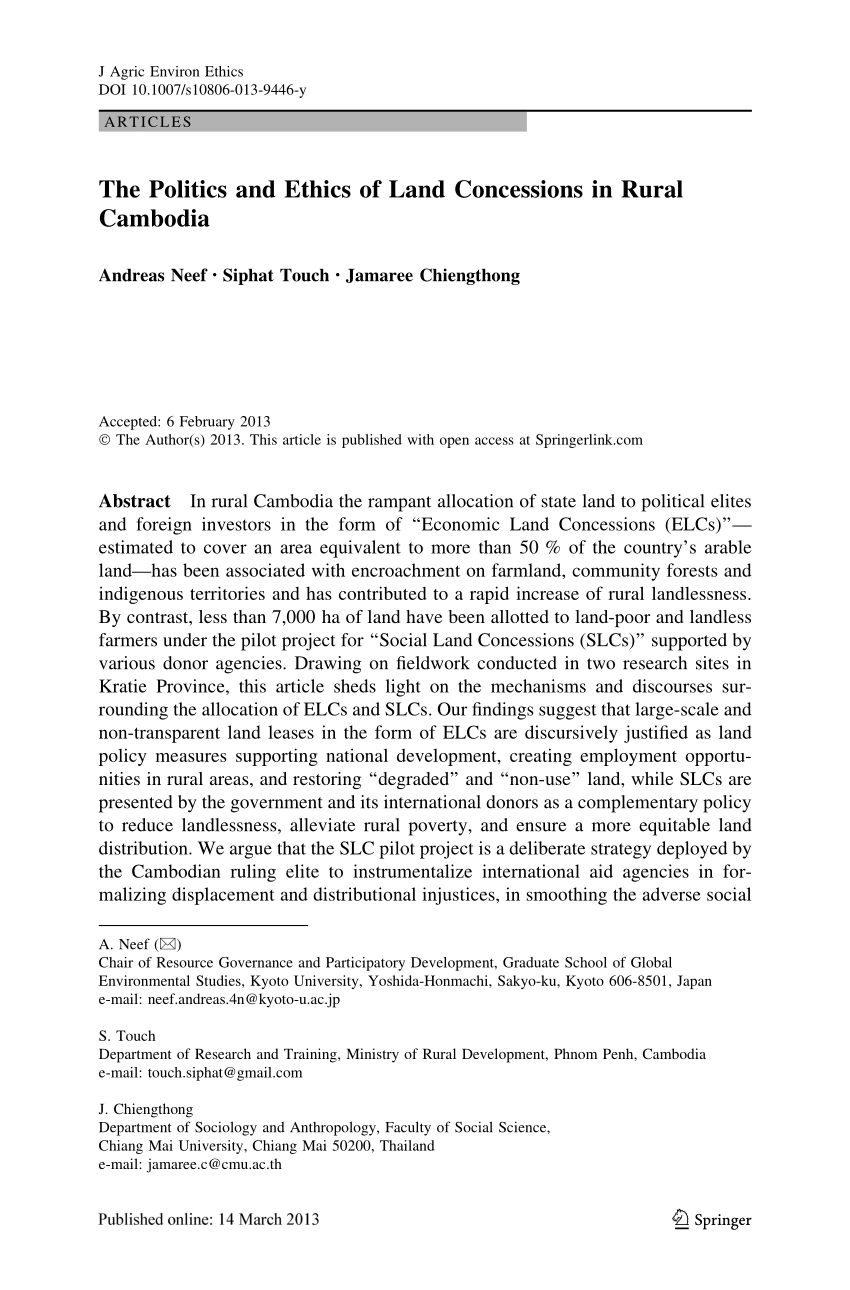Land Acquisition, Investment, and Development in the Lao Coffee Sector: Successes and Failures
Despite the increasing acknowledgment of scholars and practitioners that many large-scale agricultural land acquisitions in developing countries fail or never materialize, empirical evidence about how and why they fail to date is still scarce. Too often, land deals are portrayed as straightforward investments and their success is taken for granted. Looking at the coffee sector in Laos, the authors of this article explore dimensions of the land grab debate that have not yet been sufficiently examined.




